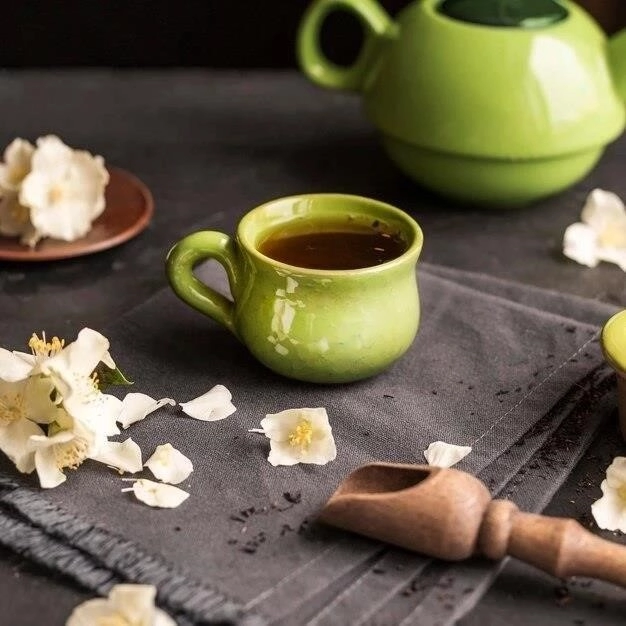Green tea, a beloved beverage with a rich history and an array of health benefits, has become increasingly popular worldwide. With countless brands and varieties available, discerning tea enthusiasts often seek the “most healthy” option. While there is no single definitive answer, several factors contribute to the healthfulness of green tea, including its origin, processing method, and overall quality. This article will delve into the key aspects of healthy green tea, providing insights into selecting the best choice for your well-being.

Factors Influencing Green Tea’s Health Benefits
The health benefits of green tea are primarily attributed to its rich content of antioxidants, particularly catechins, with epigallocatechin gallate (EGCG) being the most prominent. However, the concentration of these compounds can vary significantly depending on the following factors:
1. Origin
- Japanese Green Tea: Known for its high EGCG content and a delicate, grassy flavor, Japanese green tea, particularly varieties like Sencha and Gyokuro, are often considered among the healthiest options.
- Chinese Green Tea: Chinese green teas, such as Dragon Well (Longjing) and Gunpowder, are renowned for their diverse flavor profiles and potential health benefits. Their EGCG content can vary depending on the specific cultivar and processing method.
- Other Green Tea Origins: Green tea is also produced in other countries, including India, Korea, and Vietnam. While these teas may offer similar health benefits, their specific compositions and flavor profiles might differ.
2. Processing Method
- Steaming: Japanese green tea is typically steamed, which helps preserve its green color and delicate flavor while also minimizing oxidation and preserving its antioxidant content.
- Pan-Firing: Chinese green teas are often pan-fired, which imparts a more robust flavor and potentially affects the antioxidant profile.
3. Quality
- Whole Leaf vs. Broken Leaf: Whole leaf teas generally contain a higher concentration of antioxidants and offer a more nuanced flavor.
- Organic Certification: Choosing organically certified green tea ensures that it is free from pesticides and other harmful chemicals.
Choosing the Best Green Tea for Health
When selecting the most healthy green tea, consider the following recommendations:
- Prioritize Japanese Green Teas: Japanese green teas, especially Sencha and Gyokuro, are often praised for their high EGCG content and overall quality.
- Opt for Whole Leaf Teas: Whole leaf teas offer a richer flavor and may contain higher concentrations of antioxidants compared to broken leaf teas.
- Look for Organic Certification: Choose organically certified green teas to minimize exposure to pesticides and other contaminants.
- Consider Matcha: Matcha, a finely ground powder made from shade-grown green tea leaves, is known for its high antioxidant content and unique health benefits. However, it also contains a higher level of caffeine.

Conclusion
While there’s no single “most healthy” green tea, prioritizing Japanese green teas, opting for whole leaf varieties, and choosing organic options can significantly enhance the potential health benefits you receive from this beloved beverage. Remember to brew your tea correctly to fully extract its beneficial compounds, and enjoy it as part of a balanced and healthy lifestyle.










